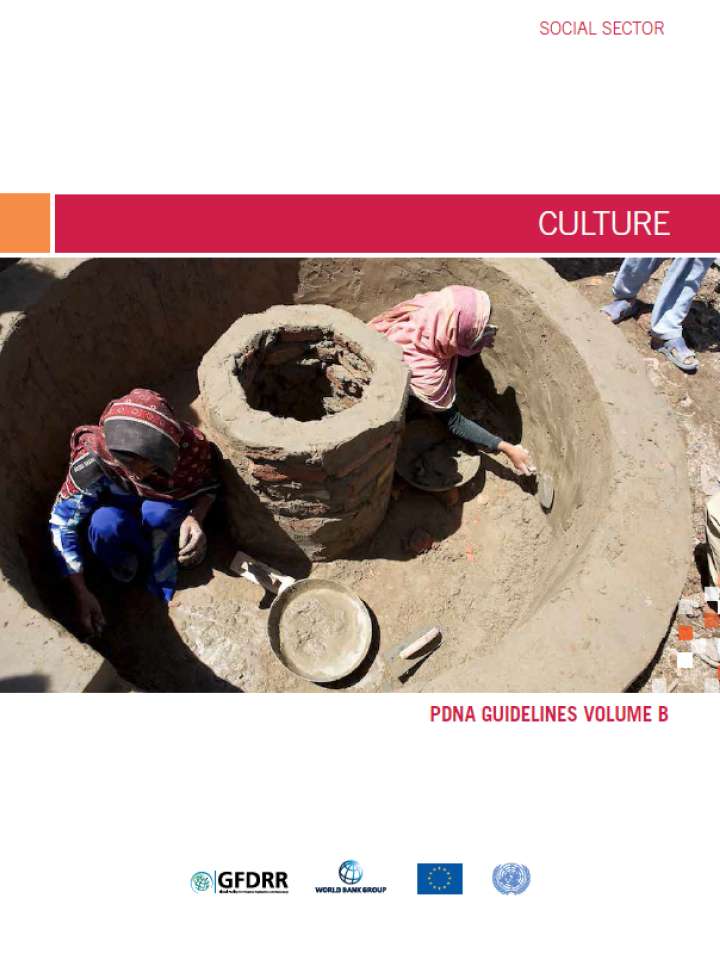Post-disaster needs assessments guidelines: Volume B - Culture
It is fundamental for all sectors for which a Post-Disaster Needs Assessment (PDNA) is planned or is carried out to consider the cultural context in which the disaster occurred and where recovery and reconstruction will take place. The resilience of social systems to disasters is profoundly influenced by cultural aspects since cultures frame people’s relationship to others in their society and the world around them, including the natural environment, and condition their behaviours. Integrating culture into post-disaster recovery programmes, therefore, fundamentally contributes to their effectiveness and sustainability while also enhancing ownership by target beneficiaries. In this respect, culture can be understood as an ‘enabler’ and a cross-cutting consideration to be mainstreamed within all sectoral assessments, similarly to aspects such as gender equality, governance or disaster risk reduction.
At the same time, the specific impact of the effects of disasters on the culture sector should also be assessed as a self-standing component of economic and human development; hence the need for a specific sectoral assessment and for this guidance.
This guidance should be used as a complement to the Volume A Guidelines of the PDNA methodology. It is aimed to assist in carrying out a PDNA of culture sector in order to conduct an integrated assessment of the impacts of disaster effects on the sector, and to define the main lines of a recovery strategy that would incorporate DRR considerations. In the process, this guidance should enable the PDNA Culture Team to identify increased risks to culture that may arise from the effects of the disaster or from reconstruction of other sectors, as well as the opportunities associated with the sector for supporting the recovery process in general.
This volume is available in English, French, and Russian.
